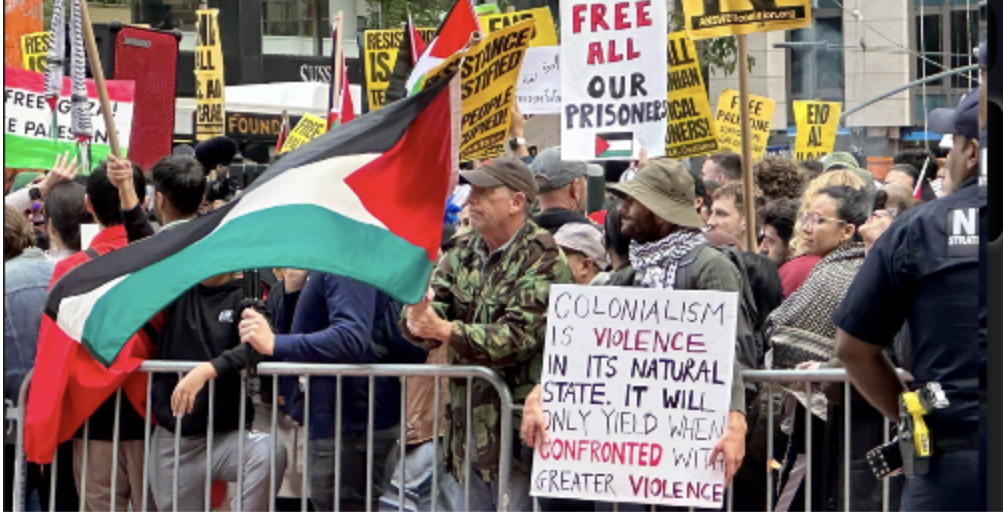

Dr. Tim Orr
In this post, I want to briefly explain what I think is going on right now on our elite college campuses across the country. Why are so many students supporting what amounts to pro-Hamas rallies? You might be asking why I didn’t say pro Palestinian rallies. I believe that only a two state solution is pro Palestinian, which would include a vision for the two places to live in harmony with one another. To be sure, the protestors have the same goals as Hamas, namely a one state solution. Below you will find my take on this issue.
The University Changed
In the 1970’s, the purpose of the university changed from a place where the free sharing of ideas and intellectual diversity were valued, to prioritizing social justice as the university’s primary purpose. Since then, many universities have become increasingly ideologically polarized, with a dominant focus on identity politics, political correctness, and social justice issues.
A Secularized Religion
In 1967, Peter Berger wrote a book titled The Sacred Canopy, which argued for a secularization thesis that suggests a decline in the significance and influence of religion in modern societies as they undergo a process of modernization and secularization. This motivated sociologists to pursue the work in a certain direction. Christian Smith argues in his book, Sociology's Sacred Project that sociology has adopted a secular salvation story as its sacred project to replace the void left from the diminishing influence of religion in society in order to create a certain desired social change. I would also add the humanities who share the same goals. This salvation story retains certain aspects of religion as you will soon see.
Sacred
Since Smith uses the term "sacred spiritual project," it is essential to define how Smith intends to understand each word. The term "sacred" is used as Emile Durlheim used the phrase, which involved a separation of the sacred and the profane. The sacred is the foundation of religious belief that unites the religious group to think collectively. The profane, on the other hand, represents the ordinary aspects of life without religious significance. Protests are sacred spaces where the sacred rituals take place. By coming together, in the sacred ritual of protest, it strengthens social cohesion, provides a sense of identity and belonging, and maintains the moral order within a community.
Spiritual
By spiritual, he does not mean the necessity of metaphysical characteristics like God, angels, demons, etc. Instead, he speaks of “spiritual” as being “that dimension of human life that concerns the most profound, meaningful, and transcendent visions of human existence, feeling, and desires.” He believes that secular social justice, rather than religious faith, has become the guiding narrative and source of meaning for many individuals and societies.
To be a “social justice warrior” is to provide someone with a sense of purpose, moral values, and a vision of a better future.
Project
This brings me to the third point, the project, known as post-colonialism. This line of thinking offers a critique of colonialism, which involves the domination, exploitation, and subjugation of one group of people by another. It highlights the violence, inequalities, and cultural impositions associated with colonial rule. Looking through the lens of historical ignorance, scholars and students alike look at Israel as the oppressor, and Hamas, fighting on behalf of the oppressed, is not being held accountable for their atrocities. Insead, students and professors sympathized with Hamas, and even cheered for them.
Why is this sacred spiritual project so important to liberate people from the oppressive structures that plague our world? This reason is that it is committed to “the emancipation, equality, and moral affirmation autonomous, self-directing, individual agents … out to live their lives as they personally so desire …” For years, things like racism, nationalism, and homophobia were issues that people concerned about social justice fought for. Yet, beginning in the late 60’s, that changed, as the concern over the effects of colonialism took center stage. Cary Nelson writes, “Soon enough, and rapidly after the 1967 war and the occupation of the West Bank and Gaza, Israel was reframed as “a key site of the imperialist system.” [B]y “defining Radical Islamism as part of the anti-imperialist “resistance” to imperialism, parts of the left redefined itself as (not very) thoughtfully or analytically sympathetic to Radical Islamism” which is where we find ourselves today.”
Sources
Berger, Peter . Sacred Canopy. (Anchor; Reprint edition) 1990
Smith, Christian. The Sacred Project of American Sociology. (Oxford University Press; 1st edition) 2014
Nelson, Cary. Dreams Deferred: A Concise Guide to the Israeli-Palestinian Conflict and the Movement to Boycott Israel. Bloomington: Indiana University Press) 2016
